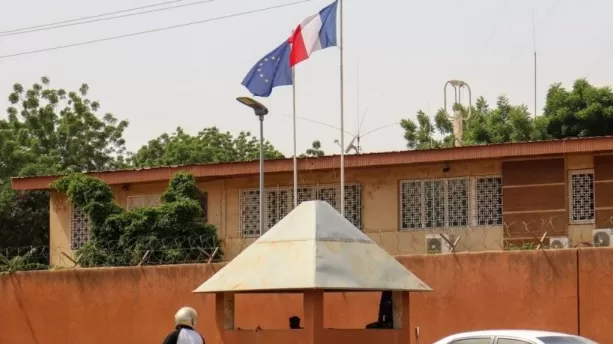France is closing its embassy in Niger indefinitely as tensions between the two countries escalate.
The embassy says it is “no longer able to function normally or fulfil its missions” due to restrictions imposed by Niger’s military government.
Local embassy staff have also been dismissed, former French ambassador Sylvain Itté said in a letter.
Niger’s relationship with France has soured since the military toppled President Mohamed Bazoum in July.
In September, Mr Itté and several French staff left the country, a month after the military regime ordered the ambassador’s exit and set up a blockade around the embassy premises in the capital, Niamey.
The embassy had been attacked by thousands of pro-junta protestors shortly after the coup, but were dispersed by Nigerien forces before they could enter the building.
The announcement of the embassy’s closure comes shortly before the expiry of the military government’s deadline for the exit of French troops.
They have been stationed in the country to help in the fight against jihadist groups linked to both al-Qaeda and Islamic State.
Most of the 1,500 troops have already left and the remaining 157 are required to depart on Friday.
Niger’s junta has signed a new defence alliance with neighbouring Burkina Faso and Mali.
Like Niger, these are both former French colonies where the military has seized power in recent years.
There has been a rise in anti-French sentiment, with the former colonial power blamed for failing to halt the Islamist insurgency raging in all three countries, and accused of retaining excessive political and economic influence long after independence.
The US, however, retains two military bases in Niger, where more than 600 American troops remain stationed.
The US considers its military presence in Niger crucial to countering the growing influence of Russia’s Wagner mercenary group in West Africa’s Sahel region.
Mali’s military junta is working with Wagner mercenaries in the fight against jihadists. The group has been accused of widespread human rights abuses.
SOURCE: BBC NEWS


















